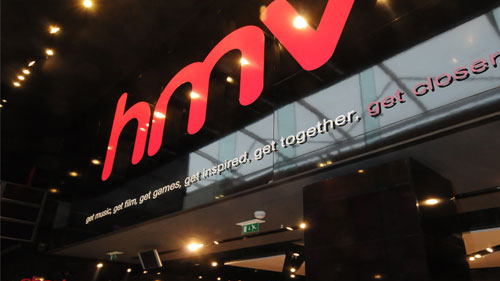Shaking fists at showroomers won't save shops
Retailers' rubbish ideas

Are you a rat bag? I am, at least by Australian shopkeeper Georgina's definition: quite often I'll see something in a shop and buy it online instead.
The reasons are usually simple: the thing I want either isn't in stock, or the retailer is charging comedy prices.
You've got to admire Georgina's solution. To prevent people looking at her stock and thinking "that's too expensive", she's charging anyone who wants to look around her shop AUS$5.
You get the money back if you buy something, and you don't if you don't. That means that unless you're absolutely, 100 per cent certain that you'll buy something, going into Georgina's shop is a very bad idea.
It's daft, of course, but Georgina isn't the only retailer getting it wrong. Thanks to technology, many retailers are finding that their prices are now premium prices - but they aren't delivering a premium service.
That's why so many of them are in trouble.
Heaven knows it's miserable now
In recent months we've seen lots of big names go belly up, citing too-high rates, rents and parking charges, as well as Amazon's tax avoidance and dodgy downloads. There's no doubt that it's tough out there, and of course every retail job loss is a tragedy for the people put out of work.
Get daily insight, inspiration and deals in your inbox
Sign up for breaking news, reviews, opinion, top tech deals, and more.
But it'd help if some businesses' strategy for combating the internet threat wasn't "deliver the most miserable shopping experience imaginable". They might not be calling people "rat bags" and charging admission, but they're hardly stepping up to fight the internet operators either.
Take DIY stores, for example. I used a click and collect service recently, driving for an hour to a far-flung shed. When I got there, a huffy sales assistant told me my order had been cancelled, that I'd been emailed about it, and that I'd also been telephoned about it.
I hadn't, of course. When I asked when the email had been sent and the telephone call made, she consulted some kind of magical bullshit machine. My order, she said, was cancelled by phone call and email at 11am the previous morning.
That was three hours before I'd placed my order.
I browsed the half-arsed, half-empty displays with their missing bits and wonky labels, unable to find what I needed.
I pulled out my phone and ordered from Amazon.
It's not just DIY. Before it went bust, shopping in Comet was like queuing for bread in East Germany in 1954. HMV appeared to be an enormous practical joke. Going into Blockbuster was like gatecrashing a funeral. Rent, rates, downloads and tax avoidance don't help, of course, but they're often contributors to a firm's demise rather than the architects of it.
The internet isn't going anywhere. We can't uninvent online shopping. That means retailers face the same choices major music companies faced in the early 2000s: come up with something different and better, or watch the tech firms take over.
Calling your customers "rat bags" doesn't help anyone but Amazon.
Writer, broadcaster, musician and kitchen gadget obsessive Carrie Marshall has been writing about tech since 1998, contributing sage advice and odd opinions to all kinds of magazines and websites as well as writing more than a dozen books. Her memoir, Carrie Kills A Man, is on sale now and her next book, about pop music, is out in 2025. She is the singer in Glaswegian rock band Unquiet Mind.
